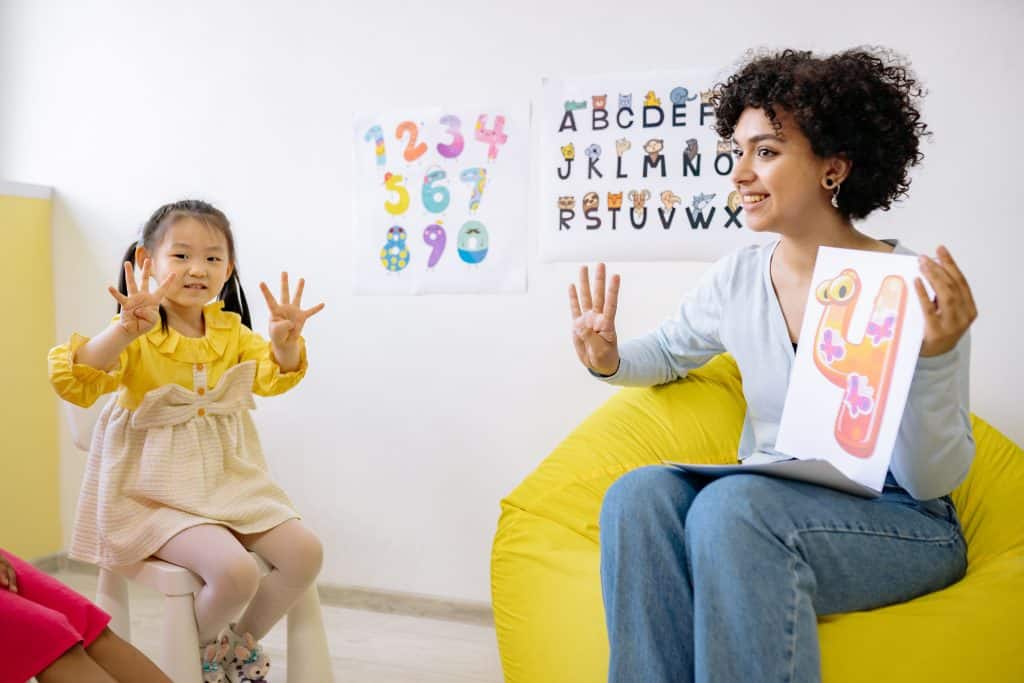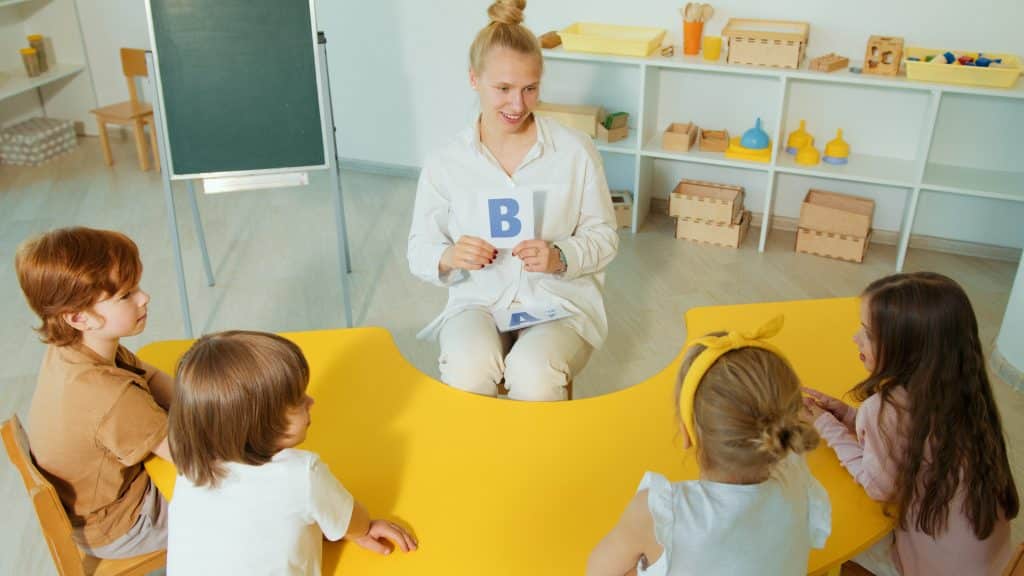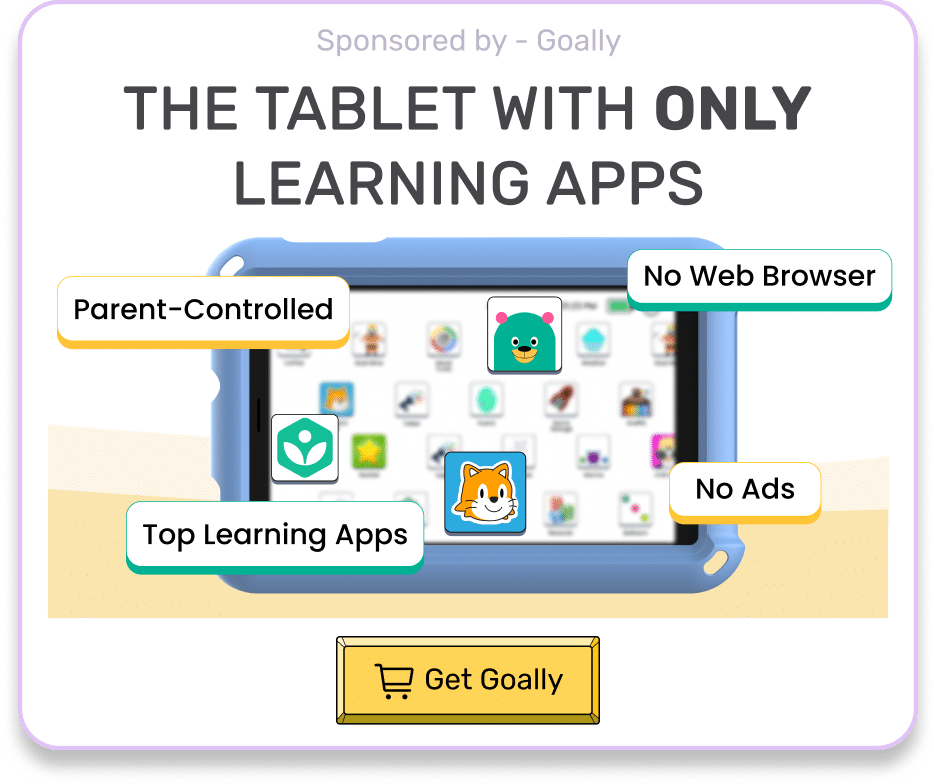In an exciting breakthrough for early childhood education, researchers have unveiled the transformative power of pre K learning games. These engaging educational activities have been proven to not only make learning fun but also crucial for child development, with a groundbreaking study showing that 89% of teachers believe they build a strong foundation for kids’ futures. As experts unveil a comprehensive guide to the best pre K learning games, tailored to cater to each child’s unique interests and abilities, parents worldwide eagerly await this game-changing resource that promises to unlock their little ones’ full potential from the earliest stages.
Table of Contents
Preschool Word Learning Games
Language and literacy development during the preschool years play a pivotal role in your child’s academic success later in life. Moreover, kids’ preschool education gamesfocused on words can be an excellent way to boost these skills while keeping them entertained! Engaging word game examples include letter recognition activities such as alphabet puzzles or flashcards, rhyming games that encourage phonemic awareness, and storytelling exercises using props or illustrations.
Incorporating these word-based activities into daily routines doesn’t have to be complicated. Try setting aside dedicated “word time” each day where you explore new letters or practice story narration together. Remember, consistency is essential to nurturing language proficiency in young learners!

Preschool Math Learning Games
Math-related kids’ preschool education games play a significant role in building numeracy skills and fostering logical reasoning abilities. Even at a young age, children can begin to grasp essential concepts like counting, sorting, or pattern recognition. Some examples include counting songs that incorporate movement, color-sorting games using everyday items like buttons or pom-poms, or simple pattern-recognition exercises with blocks.
Integrating math-centric play into your child’s everyday life can be as easy as incorporating numbers and shapes into daily conversations. Or turning routine tasks (like setting the table) into fun learning opportunities. The key is to make math approachable and enjoyable for your little one!
Preschool Skills & Strategy Learning Games
Strategy-based learning games offer an opportunity for preschoolers to enhance their problem-solving capabilities and critical thinking skills while having fun! These activities challenge young minds to think creatively and plan strategically – invaluable assets they’ll carry throughout their lives. Consider introducing memory matching cards that boost concentration, board game adaptations tailored for younger players (e.g., simplified versions of classic family favorites), or cooperative team challenges that encourage teamwork.
Read More: Game Apps for Kids
Additionally, when selecting strategy-focused kids’ preschool education games, remember to strike a balance between skill-building and enjoyment. After all, the goal is not only nurturing intellectual growth but also fostering a lifelong love of learning!
Tips for Parents to Pick Learning Games for Their Child
- Assess current skill levels – When choosing kids’ preschool learning games, consider your child’s unique developmental stage. This ensures they’re challenged yet not overwhelmed.
- Consider interests – Keep in mind what motivates and excites your little one. Selecting themes or games that align with their passions will make learning more engaging.
- Look at reviews/recommendations – Consult other parents or educators about their favorite resources for a well-rounded selection of tried-and-tested options.
- Ensure safety/appropriateness – If opting for online platforms, confirm that they provide a secure environment free from inappropriate content and prioritize the digital safety of young learners.
“Which language games will help my kid the fastest?” 👇
Goally’s tablet has some of the top language learning games & apps that help kids learn their first 50 words, practice finger dexterity & fine motor skills, AND communicate with AAC.
Tips for Kids to Enjoy Learning Games
- Encourage a growth mindset – Praise effort and resilience rather than just successes. This fosters an attitude wherein children embrace challenges as opportunities to learn.
- Make it social – Involve siblings or friends in cooperative play experiences, fostering teamwork while making the activities more enjoyable.
- Set realistic expectations – Be patient as your child learns new concepts. Reassure them that progress takes time, and every step counts towards mastery!
- Celebrate milestones – Acknowledge small victories along the way (e.g., solving a tricky puzzle), boosting motivation and confidence levels as they continue their learning journey.
By incorporating these tips for introducing kids’ preschool learning games, you create an environment both fun and educational. Thereby setting the stage for lifelong curiosity!
Goally | Fun Games that Build Motor Skills & Manage Screen Time
Looking for ways to improve your child’s finger dexterity skills while also keeping screen time manageable? Try Goally’s skill building tablet for kids— it has a bunch of fun & motor planning games!
Our “Balloons” & Graffiti Street Apps are all about building motor skills in a fun, interactive way. Kids learn to “pop the balloons” or draw dozens of digital art designs while simultaneously developing the essential skills needed to use AAC and other communication tools. It’s a blast for them and a win for you!
Conclusion
Throughout this guide, we’ve explored the diverse world of kids’ preschool learning games and their importance in cultivating essential foundational skills. By selecting engaging word, math, and strategy-based activities for your child’s developmental stage and interests, you’re empowering them for success.
Remember that as parents, your involvement and support play a crucial role in making these learning experiences enjoyable and effective. Embrace the tips shared here to create a nurturing environment where your little one thrives! For more resources on helping children with ADHD and Autism reach their full potential through technology, be sure to visit Goally’s website – together, let’s pave the way for our children’s bright futures!
FAQs About Preschool Education Games
Why are kids' preschool education games important? Kids' preschool learning games are important as they aid in the development of foundational skills like numeracy, pattern recognition, and logical reasoning, all while making learning a fun and engaging experience.
How can kids' preschool education games aid in my child's development? These games foster cognitive growth by introducing and reinforcing concepts like counting and sorting. They also improve fine motor skills and promote creativity, helping children become well-rounded individuals.
Can kids' preschool education games help with daily routines? Absolutely! By incorporating learning games into daily tasks like setting the table, your child learns new concepts in a real-world context, making them more relevant and understandable.
What types of kids' preschool education games are there? There's a vast range of kids' preschool learning games, from counting songs that encourage movement, color-sorting games with everyday items, to pattern-recognition exercises using blocks.
How can I make math fun for my child with kids' preschool education games? Integrating numbers and shapes into daily conversations and routine tasks turns them into fun learning opportunities, making math approachable and enjoyable for your child.
This post was originally published on March 28, 2023. It was updated on June 18, 2023.
Emily is a seasoned blog writer for Goally, leveraging her extensive background in child psychology and special education to provide valuable insights and resources for parents. Her commitment to understanding and addressing the unique needs of these children, combined with her expertise in educational strategies, makes her a credible and empathetic voice for families.







